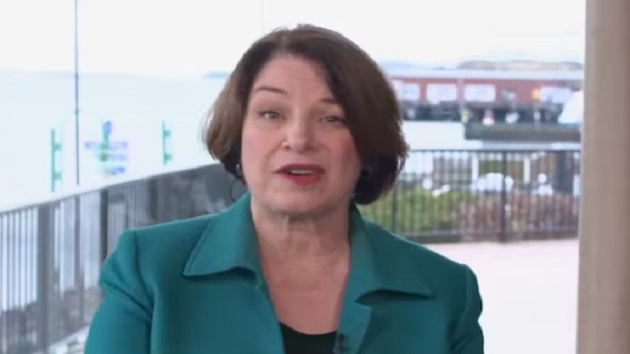Washington Post advice columnist Carolyn Hax hasn’t followed the British royal family drama. She avoided the Oprah interview, the Netflix documentary series and the bombshell excerpts from Prince Harry’s new book. Her excuse: “It’s Kardashians, to me, with crowns.”
Carolyn Hax’s advice for Prince Harry and the royal family
Written by on January 21, 2023
It allows her to see this saga for what it is: the kind of familial angst she hears about from her readers every day. When you remove the titles and fame and extreme wealth, the crux of all this drama is very ordinary. Tension between in-laws. Long-festering sibling power dynamics. The unbearable weight of familial expectations. Who can’t relate?
Our daily podcast Post Reports brought on Carolyn, and host Martine Powers posed some questions (written by producers Jordan-Marie Smith and Sabby Robinson) that were based on some painfully real situations, ones that royal watchers surely will recognize. And for each, Carolyn offered advice that everyone — not just Harry, Meghan, Charles and William — might find useful.
Here are the best parts of the conversation, edited for length and clarity:
Martine Powers: Carolyn, here is the first question: “My brother recently released a memoir where he talks extensively about our very personal family matters. And on top of this, he and his wife released a Netflix documentary about our life and family. I feel like there’s already been so much toxic communication happening between us. What should I do? Should I speak out publicly, or should I try to speak with him to see if we can finally stop this awful cycle of public shaming?”
Carolyn Hax: The first thing that comes to mind is you have to go to the person. Because if the relationship weren’t broken, then none of this would be happening. And I think that the way to repair anything like that is to own your own part in the breakage. Why did this break? What did you do personally to contribute to this problem?
Powers: It sounds like you’re saying you have to call up this person and say, “Look, I did this thing wrong. I will acknowledge to you that some of this stuff was hurtful or that I shouldn’t have done it.”
Powers: That’s a difficult conversation to have.
Hax: Of course. What I see a lot with these relationships that fracture to this degree and for this long and this badly is there’s usually some hard conversation that didn’t happen when it should have happened, because people were avoiding it or they were retrenching and defending themselves. And instead of just saying, “Okay, you’re right, I am angry at you. You’ve done a bunch of things wrong yourself, but I’m not going to get anywhere with that until I own the bad things that I did,” people don’t want to do that.
It gets even harder when somebody responds to your mistake with an even bigger mistake. And I think a lot of people get tempted into saying, “It’s on now. What you did was so much worse that it absolved me of whatever I did.” And that’s not true. You’re still responsible for your part of it, even if it’s much smaller.
The relationship may be beyond salvaging. It’s still better for you to recognize, acknowledge and apologize for the thing you did wrong, even just for you, just because it’s the right thing.
Powers: It sounds like you are saying that to then, in turn, as a hurt person, go out and publish a memoir with all of your beef with this person that you know has hurt you, that that also is a mistake. Publishing a memoir is maybe not a thing that everyone does, but I think there are a lot of people who, when they’re mad, post something on Facebook about how wronged they have felt by a member of their family.
Hax: If you have an objection to something that somebody is doing, you handle it with the person. If you’re just talking about regular people who have something going on in their family, I think blasting it to the world is vanity. Why? Why did you need to tell everybody about this? There has to be some reason to bring something public.
If there is alleged wrongdoing, [such as accusations of racism], that affects other people or compromises an institution, I think it’s important to speak out. I don’t think other people get to say: If you feel you were harmed by racist behavior you have an obligation to speak out about it. I think the wronged party is the one who gets to make that calculation. But I do think if somebody does choose to take that on, that is absolutely defensible. It’s important.
Powers: We have another question: “My husband and I have two young children, and we really want them to have a close relationship with their cousins. But in recent years, my husband and his brother have had a massive falling out, and so our families never really see each other anymore. It also doesn’t help that they live in another country. How should I go about explaining to my kids why they haven’t been able to see their cousins, and what should I do to make sure that they can have some sort of relationship with them in the future?”
Hax: I’ve gotten a version of this question a lot, and I find it’s one of the more difficult ones to answer, and here’s why. If you are cutting off a relative, you have to look down the road and recognize that this child of yours might cut you off when you do something wrong if you are not offering them some sort of nuanced understanding of when it’s important to work on things and when it’s important to protect yourself and to cut the tie.
Trying to explain it to a child in childlike terms, it’s almost asking too much. So I think you end up with: “This is an unfortunate situation and we’re not able to see them right now. And I know we love your cousins, and I know they love you,” and you just sort of treat it as an unfortunate casualty of circumstance. If you don’t saddle them with your own biases, they can then seek each other out when they’re out in the world.
Powers: The thing that a lot of people struggle with is: Should I tell my kid why I think their aunt did some really bad things that I don’t agree with and that’s why we don’t talk? Should they keep it very much a secret and then let that just be a mystery for that kid’s whole childhood?
Hax: I don’t think the secret and the mystery equips your kids to handle things, because the minute you deny people information, they go seek it. And they’re going to, anyway. There’s the point of inevitability on all of this. But I think if you stick to the truth and then what you did with the truth, then generally, I think you’re okay. So the truth is that the brothers aren’t getting along, the two families aren’t getting along, and that is really unfortunate, and I wish it could be otherwise, but we will not be seeing them the way we used to. And it’s basic fact. It doesn’t throw anybody under any buses.
Powers: Okay, so now we have a final question: “So, more than two decades ago, I became a widower. When I wanted to get remarried to the new love of my life — or perhaps longtime love of my life — my sons asked me not to. I did anyway. But I recently learned how unhappy one of my sons was with my decision to go forward with this marriage. I love my wife. She has been a rock by my side, and it hurts me that my son doesn’t see how important she is to me and to our family. What do I do now?”
Hax: Live with it. You can’t lobby people into changing their minds about how they feel, and the more you do, the more entrenched they’re going to be. The father in this situation has to acknowledge that he read it wrong and it cost him their relationship. And it goes back to the original answer we were talking about, where you just own your part in it for yourself, for your own conscience. Say, “You know what? I read this one wrong, and I’m really sorry.”
You can go on for days about how “this was my life to live. I got to make my own choice. I’m not going to decide who’s going to be my life partner based on my traumatized kid.” You can say all those things, and they’re all going to be true, but there is also emotional truth, and the emotional truth is this is going to be a sore spot in this kid.
Powers: Do you hear people go through situations like this?
Hax: I can’t think of one that is directly analogous, but, definitely, the general idea of somebody setting out a condition that is just so heavy and complicated. And here’s the thing: If the sons were writing to me, saying they want to set out this condition, I would tell them no, don’t do that. Don’t set yourselves up for that kind of disappointment. Don’t hinge your emotional health on your dad’s choices. Your emotional health is up to you, and the minute you put it in somebody else’s hands like that, you’re asking for a lifetime of complications.
watch avatar the way of water full movie
watch avatar the way of water full movie
watch avatar the way of water full movie
watch avatar the way of water full movie
watch avatar the way of water full movie
watch avatar the way of water full movie
watch avatar the way of water full movie
watch avatar the way of water full movie






